Ars Electronica KEPLER’s GARDEN Linz

STARTS Exhibition
Kepler's Garden on the JKU campus
STARTS is a platform aiming to foster alliances of technology and artistic practice that effectively implement European policymaking to nurture innovation and that also benefit the art world.
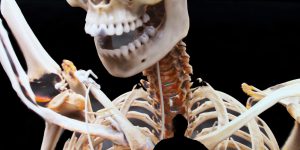
Virtual Anatomy – Preview of the JKU MedSPACE
Interactive multisensory environment, 2020
The Johannes Kepler University Linz (JKU) is currently constructing a modern, future-oriented multi-purpose learning space at the JKU Faculty of Medicine’s new medical education and research building. Scheduled to open in 2021, the space will not only be used as a virtual lecture hall for anatomy courses, but will also provide live surgery broadcasts from operating rooms to improve student education and post-graduate educational courses.
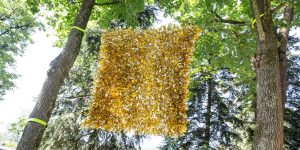
Klangfahnen
Sounding Linz
The Klangfahnen were developed and woven for Sounding Linz to mark urban places with great symbolic power for the urban quality of the city.
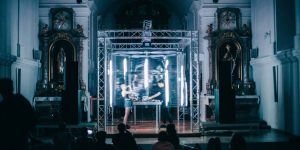
Guest Projects
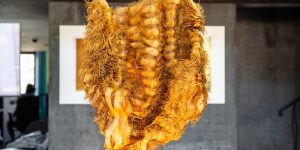
STARTS Prize Exhibition Tour
The annual STARTS Prize Exhibition presents a selection of current best practice examples at the intersection of science, technology and the arts. Kristina Maurer and Karla Spiluttini take the viewers on a journey through this year’s exhibited projects in Kepler’s Garden. From circular economy to the relationship between ecology and technology, through digital humanism and empathic approaches to artificial intelligence, the exhibition shows the outstanding diversity of artistic practice in the STARTS field.
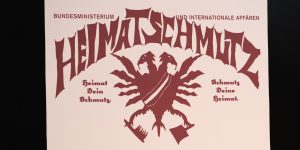
DIRTY LIVES BETTER
Barbara Ungepflegt (AT), Elsbeth Wallnöfer (IT)
Since December 2017 Barbara Ungepflegt has been Minister for Homelandtrash and International Affairs. Ungepflegt considers urgent measures to preserve the constantly disappearing homeland dirt until it is too late for Team Austria, animals and dumplings. In cooperation with Elsbeth Wallnöfer, chairwoman in the home country, the Minister will present in detail the program of DIRTY LIVES BETTER at the 2020 Ars Electronica Festival.

What Type of Crisis is This?
Walter Ötsch (AT)
We invite people from the fields of philosophy, sociology, economics and media studies to take part in a public discussion of these questions. Experts will present their views, challenge each other and offer suggestions for the future of our society.

COVID-19 Crisis: How could/can society change?
Walter Ötsch, Renata Schmidtkunz, Antonia Birnbaum, Evelyn Bodenmeier, Leonhard Dobusch, Sighard Neckel
Walter Ötsch develops two scenarios for the future of society: a positive and a negative one. He will give an overview of the possible ideas for the future, both positive and negative, that were considered in the workshop. Together, obstacles and options for the future are discussed.

COVID-19 Crisis: What options does civil society and social media have?
Walter Ötsch, Renata Schmidtkunz, Leonhard Dobusch, Evelyn Bodenmeier
We invite people from the fields of philosophy, sociology, economics and media studies to take part in a public discussion. Experts will present their views, challenge each other and offer suggestions for the future of our society.

COVID-19 Crisis: Future Scenarios
Walter Ötsch, Renata Schmidtkunz, Sighard Neckel, Antonia Birnbaum
The coronavirus shock will change society and it will not be possible to return to the "normal state of affairs" we had before the crisis. Two scenarios are outlined: (1) In the negative scenario, the coronavirus shock will bring little change on the surface, but will, in fact, fundamentally reshape the political shell that surrounds capitalism. This is explained in analogy to developments after the 2008 financial crisis, in which the elites who caused the crisis were not challenged and held accountable. In this thoroughly realistic scenario, a new authoritarian form of capitalism can emerge, in which the new power for the states is also expanded into new forms of surveillance. (2) The positive scenario ties in with many historical experiences in which the world was improved after crises. We are currently experiencing a redesign of political action that contains positive moments such as new forms of talking collectively about fears, new forms of solidarity with strangers and the experience of how important and powerful politics can be. Perhaps in this scenario it may be possible to combine the corona shock with concerns about the coming ecological crises and to take effective steps to mitigate them.
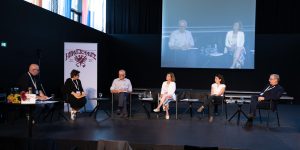
COVID-19 Crisis
Walter Ötsch (AT), Renata Schmidtkunz (AT)
We invite people from the fields of philosophy, sociology, economics and media studies to take part in a public discussion of these questions. Experts will present their views, challenge each other and offer suggestions for the future of our society.
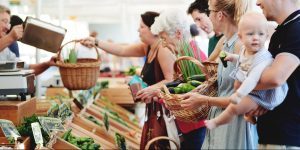
BIO AUSTRIA Farmers’ Market: Organic quality you can taste
BIO AUSTRIA (AT)
On September 12, the organic farmers of BIO AUSTRIA will present their superb regional products at Kepler’s Gardens.
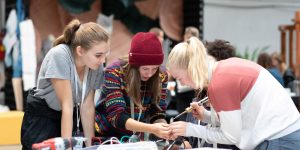
create your world 2020
Kepler's Garden on the JKU campus
The create your world festival invites young people and the young at heart to create social and creative closeness – with physical distance. An exchange network will share projects, ideas and talents. This platform for education, experiments and different future scenarios will show a great variety of young experts, all of whom can learn from each other.
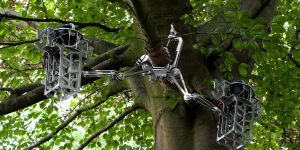
Garden Exhibition
Kepler's Garden on the JKU campus
The Garden Exhibition on the JKU campus in Linz is dedicated to the interplay of art, research and industry/design. Selected works of art take up the metaphor of the garden playfully and in different ways.
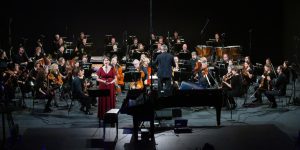
Big Concert Night 2020
The Big Concert Night in collaboration with Bruckner Orchestra Linz has been an integral and unique part of the Ars Electronica Festival for over a decade. Each year, it provides unique opportunities to explore and cross boundaries – an encounter between musical worlds.
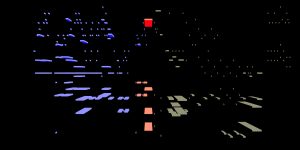
Ricercar: An AI-Based Music Companion
Ali Nikrang (AT)
Ricercar is an interactive AI-based music composition system being developed by Ali Nikrang at the Ars Electronica Futurelab.
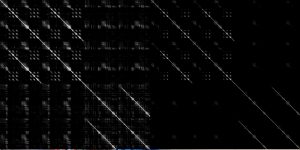
How Machines See Music
Ali Nikrang (AT)
This installation visualizes some aspects of the inner life of a deep neural network for music composition called Ricercar that is being developed at Ars Electronica Futurelab.
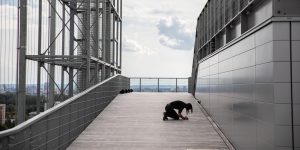
Somnium
Ali Nikrang (AT), Martin Honzik (AT), Alexander Wöran (AT)
Somnium is an installation playing with the ambience of the stunning location at the JKU TNF-tower and hymns, a musical form specifically written for the purpose of adoration or prayer.
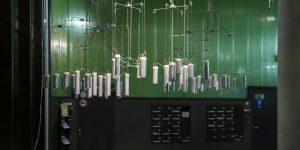
Pluvial
Kerstin Ergenzinger (DE)
Pluvial is a sono-tactile architecture that follows the associative and physical quality of rain noise.
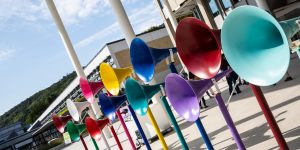
The Welcome Chorus
Yuri Suzuki (JP)
A work composed of 12 interactive horns, placed at Turner Contemporary, a contemporary art gallery in Kent, UK. It uses two methods – one is to feed lyrics and melodies by musicians into the AI and the other is to produce a short melody created by the AI recognizing vocal tone, tempo and specific words spoken into the sculptures by gallery visitors. Every few minutes, the work produces a unique chorus.


